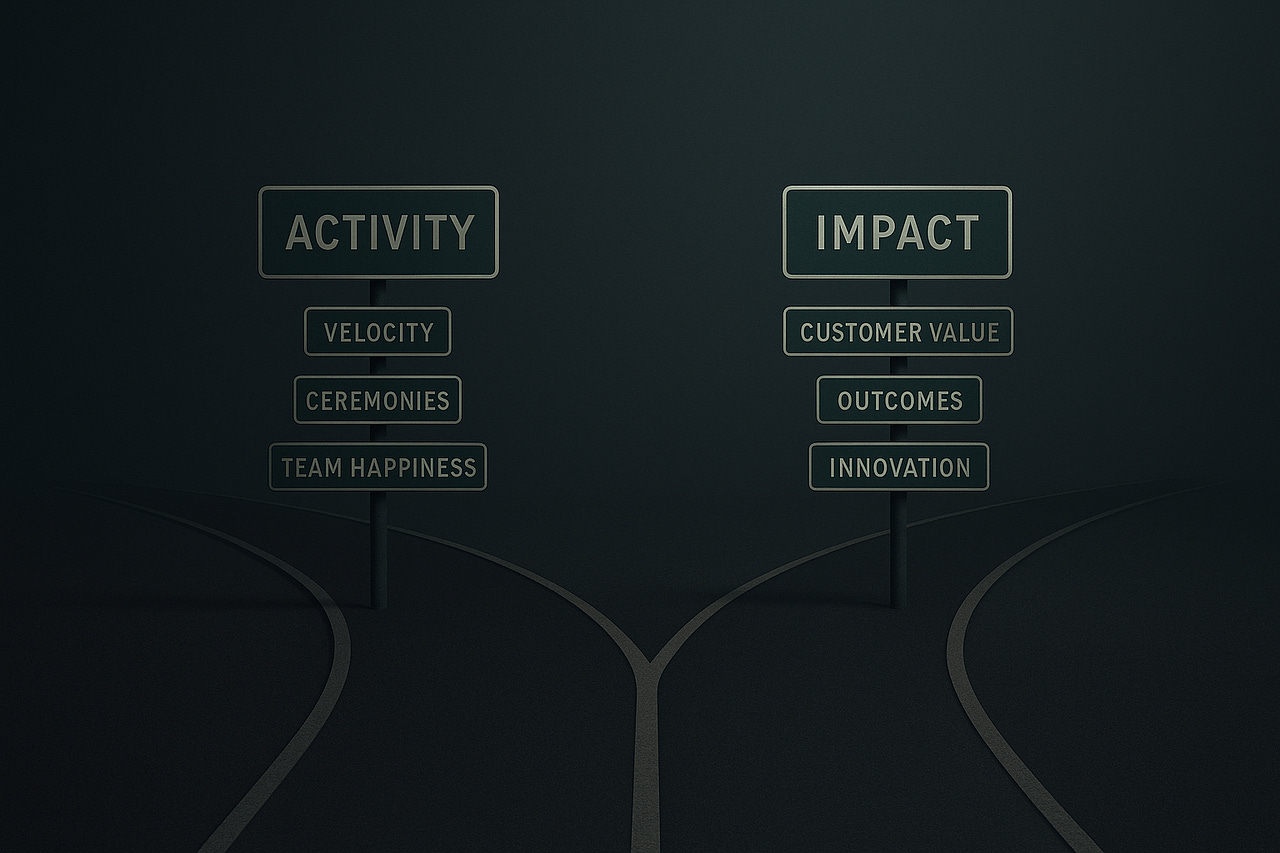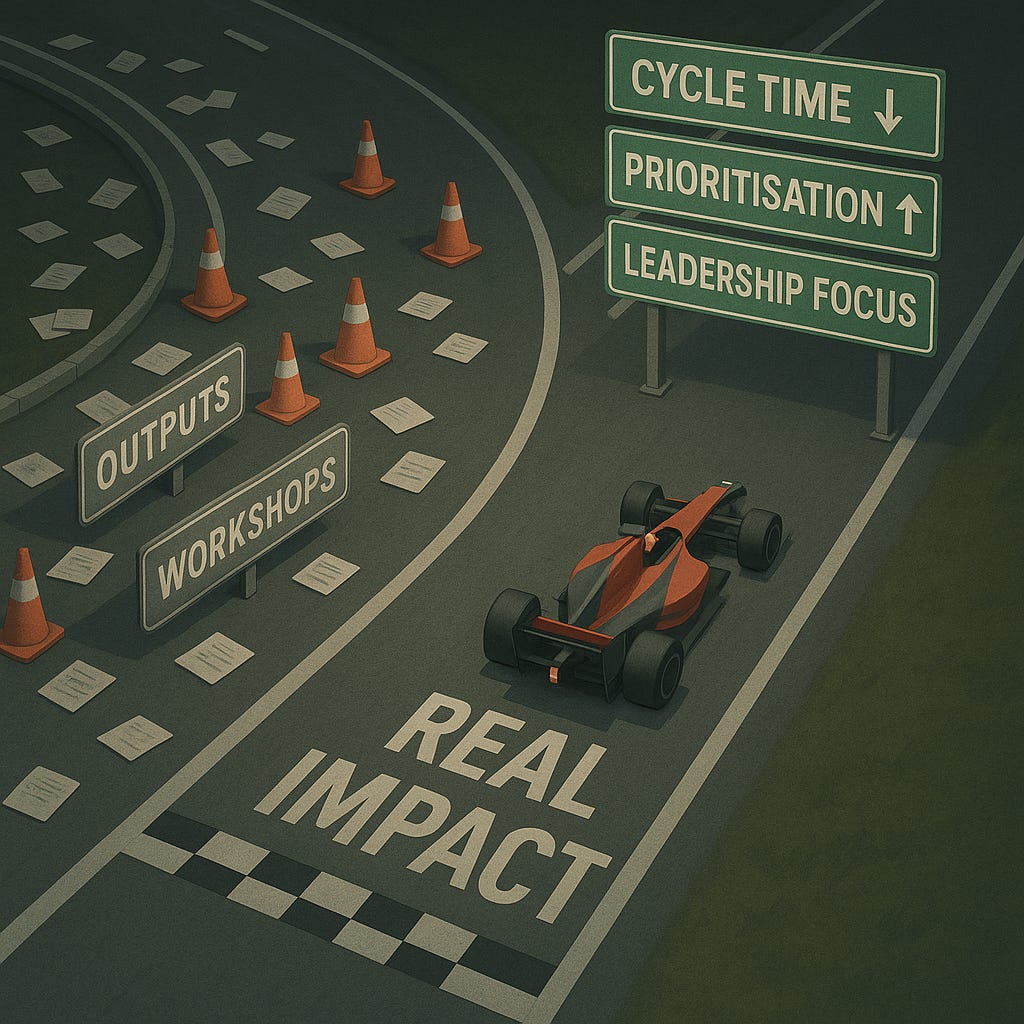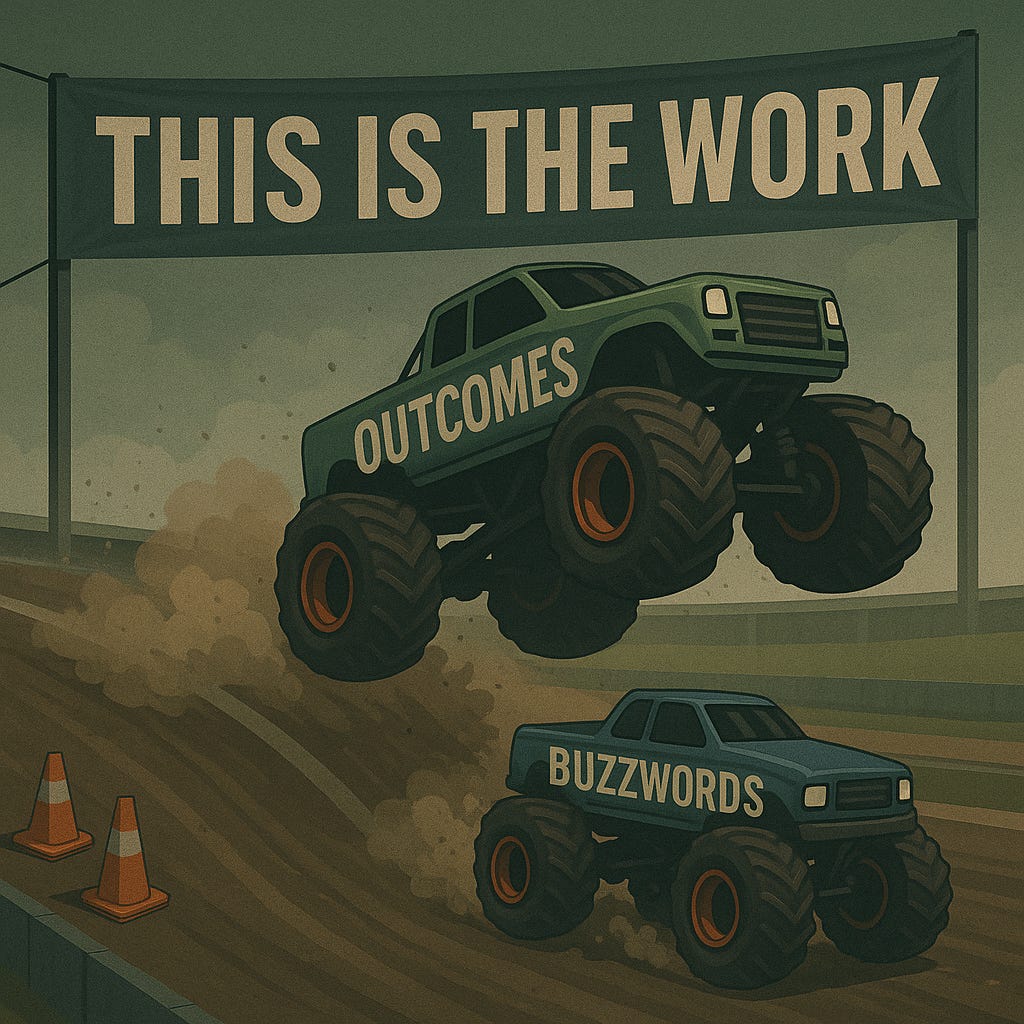Impact Realisation: No Impact, No Value
Real change shows up in results. Everything else is just noise
You can be the most insightful Agile Coach or diligent Scrum Master in the building…but if the organisation can’t see, feel, or measure the impact of what you do…your role will always be seen as “nice to have.”
We talk a lot about value.
But what we really need to talk about is impact realisation.
Because it’s not just about delivering change.
It’s about understanding what that change actually achieved.
Follow me on medium: https://medium.com/@jdotharrison
What Is Impact Realisation?
Impact realisation is the process of:
Identifying the outcomes a change is meant to deliver
Measuring whether those outcomes actually happened
Evaluating how meaningful those outcomes were
Learning from it to influence what we do next
(I’m fully aware IMEL isn't a great acronym but I’m working on it — suggestions welcome)
It answers questions like:
“Did this this X improve decision-making?”
“Did this new Y actually reduce lead time?”
“Did our Z lead to better product outcomes?”
In other words:
It makes work visible, valuable, and verifiable.
Why It Matters (More Than You Think)
If you don’t actively realise and reflect on impact, you run into the classic a trap:
✅ Everything is busy
❌ Nothing changes
🤷 Nobody can prove it worked
Here’s why that kills momentum:
🔍 Accountability
If you can’t measure what your coaching enabled, stakeholders can’t justify investing in it
🧠 Decision-making
Impact data helps leaders stop guessing which levers actually drive value
🧪 Improvement
Looking at realised outcomes reveals gaps in how teams learn, adapt, and respond
♻️ Sustainability
Long-term agility depends on whether improvements become embedded, not just delivered
Follow me on medium: https://medium.com/@jdotharrison
So Where Does Coaching Fit In?
Here’s the truth: you’re not just facilitating change.
You’re guiding people through a cycle of value hypothesis → behaviour shift → measurable impact → learning → adaptation.
And that makes you a strategic asset — if you work in a way that surfaces that impact clearly.
A few ways to start embedding impact realisation into your coaching:
🔹 Identification
Every change should begin with a conversation about expected outcomes
“If this works, what would be different?”
“What behaviour, metric or decision would signal success?”
Coaches can prompt this thinking early and often — especially when everyone just wants to “implement Scrum” or “fix delivery”.
🔹 Measurement
Outcomes don’t need to be complicated to be meaningful
“Let’s track time-to-decision pre and post working agreement”
“Let’s measure how many backlog items had customer input over time”
“Let’s see if team delivery aligns more closely to business OKRs after our backlog coaching”
The goal isn’t dashboards.
It’s feedback loops.
🔹 Evaluation
Realisation happens after the activity
“We ran the sessions — but what actually improved?”
“What changed for the customer, the business, or the system?”
“Are we closer to our intent?”
The most underused tool in Agile coaching: follow-up conversations with intent
Return to the scene. Ask what changed. Capture what didn’t.
(Basically an Agility focused Detective)
🔹 Learning
This is where the gold is — and it’s where coaches bring the most value
“What did this teach us about how this team/tribe/org responds to change?”
“How can we tweak our next intervention to make the outcome clearer?”
“What assumptions did we prove wrong — and what does that tell us?”
Learning becomes strategy when you’re bold enough to hold a mirror up.
Impact Realisation Makes You Unmissable
When you work this way, your job stops being about rituals.
It starts being about results.
You’re not just running workshops — you’re:
Helping a team reduce cycle time
Guiding a PO toward better prioritisation decisions
Influencing leadership to focus on outcomes over outputs
Creating visibility of progress in real human terms
And that’s when your work starts scaling.
Because the real value of coaching isn’t what you do — it’s the change that sticks without you there.
This Is the Work
No one’s coming to give you permission to work this way.
But the best coaches already are.
They ask deeper questions.
They connect improvements to outcomes.
They keep learning alive after the buzz has worn off.
Agile coaching isn’t about making people Agile.
It’s about making change matter.
If you want to be taken seriously — and stay relevant — start doing what consultants rarely do:
Stick around long enough to realise the impact.
Follow me on medium: https://medium.com/@jdotharrison




